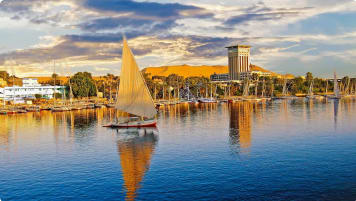Colonisation of Africa
This article explores how European powers partitioned, colonised, and administered Africa in the late 19th and 20th century.An Antipodean travel company serving World Travellers since 1983 with small group educational tours for senior couples and mature solo travellers.
18 Nov 24 · 13 mins read
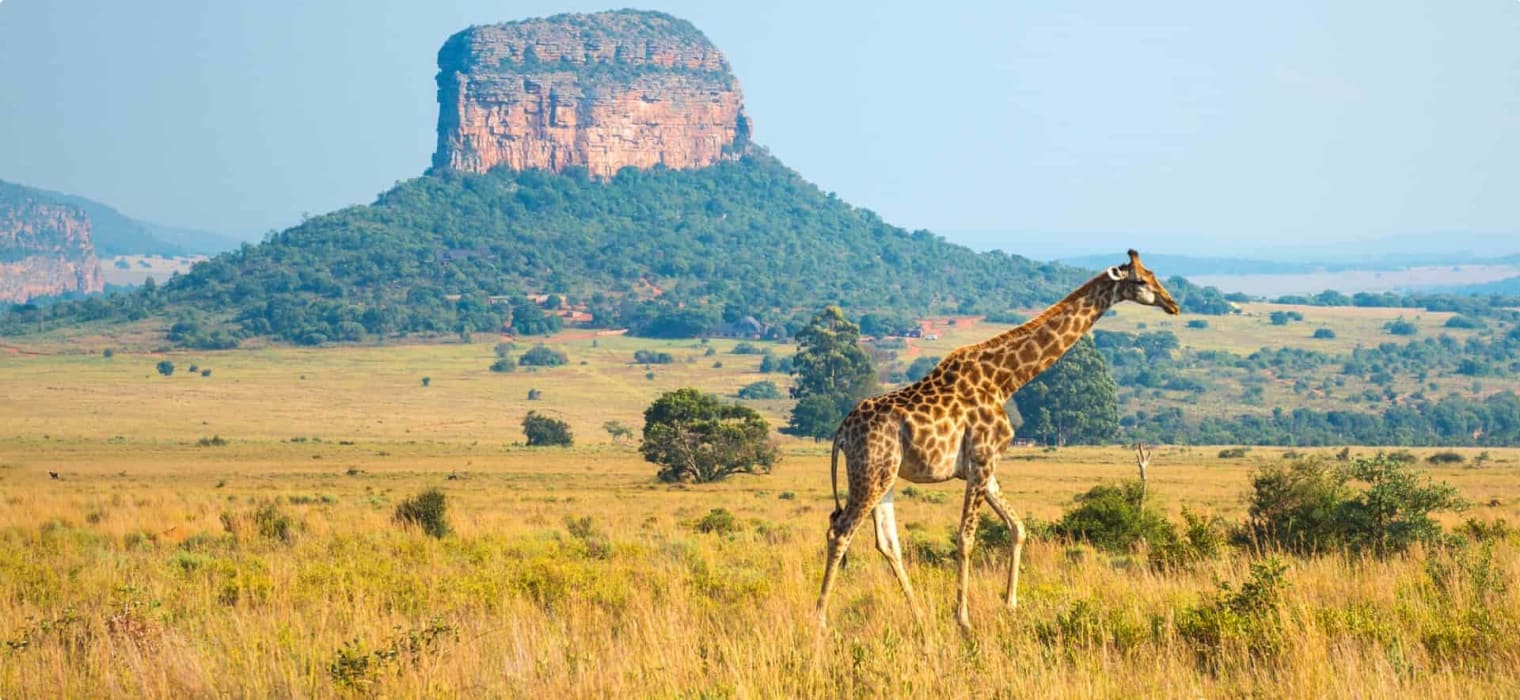
The Partition of Africa
The Scramble for Africa, occurring in the late nineteenth century, saw European powers divide and claim nearly the entire continent. Formalized during the Berlin Conference of 1884-85, European nations established rules for colonization without African representation, leading to arbitrary borders that ignored indigenous cultures and political landscapes. This period transformed Africa, previously known to Europeans mainly through coastal contacts, into a patchwork of colonies governed by European powers.
The imposition of colonial rule involved significant exploitation and resistance, with European powers prioritizing resource extraction and establishing minimal administrative structures. The arbitrary borders drawn during this era have had lasting consequences, contributing to ongoing conflicts and tensions in Africa. By the start of World War I in 1914, European dominance was firmly established, reshaping the continent’s political and social dynamics in ways that are still felt today.
This article explores how European powers partitioned, colonised, and administered Africa in the late 19th and 20th century. It is intended as background reading for Odyssey Travellers tours to Africa. In Africa, our expeditions cover captivating destinations like Luxor, Casablanca, vibrant Moroccan souks, the Red Sea, and ancient Roman ruins in Tunisia or Algeria. Our educational tours throughout Southern Africa, North Africa, East Africa, Egypt, and the Middle East, including Morocco, embody our commitment to providing enriching cultural and heritage experiences beyond mere sightseeing.
Much of the information used in this article is sourced from Martin Meredith’s The State of Africa: A History of the Continent Since Independence. Article continues below.

The Scramble for Africa
During the Scramble for Africa at the end of the nineteenth century, European powers staked claims to virtually the entire continent This imperialistic drive was formalized through a series of diplomatic conferences held in European capitals such as Berlin, Paris, and London. Notably, these conferences did not include any representation from native Africans, thereby excluding them from decisions about their own lands.
The Berlin Conference of 1884-85 was particularly significant in formalizing this “New Imperialism”. Initiated by German Chancellor Otto von Bismarck, the conference aimed to establish clear rules for the European colonization of Africa to prevent conflict among European nations over territorial disputes. The agreements reached during the conference led to the arbitrary division of Africa, with many of the borders still persisting today.
Hitherto Europeans had known Africa more as a coastline than a continent. Established empires such as Britain, France, Spain, and Portugal had established their presence in various coastal areas. However, large sections of the coastline and almost all of the African interior remained independent and unexplored by Europeans. European control was restricted to about one tenth of the continent, with significant European settlements primarily found along the Mediterranean coast and in southern Africa.
The maps used to carve up the African continent during the Scramble for Africa were largely inaccurate, often labelling vast areas as “terra incognita” or unknown land. When delineating the boundaries of their new territories, European negotiators frequently resorted to drawing arbitrary straight lines on the map, , with little consideration for natural features or the complex tapestry of traditional monarchies, chiefdoms, and other African societies that existed on the ground. This disregard for indigenous boundaries has had long-lasting consequences, contributing to conflicts and tensions that persist in Africa today.

Nearly half of the new frontiers imposed on Africa were geometric lines, lines of latitude and longitude, other straight lines or arcs of circles. In some cases, African societies were rent apart: the Bakongo were partitioned between French Congo, Belgian Congo and Portuguese Angola; Somaliland was carved up between Britain, Italy and France. In all, the new boundaries cut through some 190 culture groups. In other cases, Europe’s new colonial territories enclosed hundreds of diverse and independent groups, with no common history, culture, language or religion.
Some kingdoms managed to survive intact. For example, the French retained the monarchy in Morocco and in Tunisia, and the British ruled Egypt in the name of a dynasty of foreign monarchs founded in 1811 by an Albanian mercenary serving in the Turkish army. However, other kingdoms, such as Asante in the Gold Coast (Ghana) and Loziland in Northern Rhodesia (Zambia) were merged into larger colonial units.
In some cases, historically antagonistic kingdoms were grouped together within the same colony, as seen with Buganda and Bunyoro in Uganda. In the Sahel, meanwhile, new territories were established across the great divide between the desert regions of the Sahara and the belt of tropical forests to the south – Sudan, Chad and Nigeria – throwing together Muslim and non-Muslim peoples in latent hostility.
Although most African colonies came under the control of European nation-states, the Berlin Conference allocated the territory that is now the Democratic Republic of Congo to a supposedly philanthropic organization run by King Leopold II of Belgium. The official notion was that this area would serve as a Free Trade Zone for all Europeans in Africa. However, in practice, Leopold II largely excluded other European traders and granted concessions to various corporations to exploit the region’s resources, particularly rubber.

Leopold’s regime in the Congo Free State was marked by extreme brutality and exploitation. Atrocities committed between 1885 and 1908 included the use of forced labour, where those who refused to work or failed to meet rubber quotas were often killed or mutilated, having their hands or feet severed. These horrific practices led to a humanitarian outcry and eventually forced the Belgian government to take control of the Congo from Leopold in 1908.
The Scramble for Africa is generally considered to have ended with the start of World War I in 1914. By this point, some 10,000 African polities had been amalgamated into forty colonies and protectorates divided between seven European powers. Only two African nations managed to remain independent: Liberia, which was generally regarded as being under the protection of the United States; and Ethiopia, an ancient Christian kingdom that successfully resisted colonization.
Enforcing the Partition
European states’ claims to African territories were only recognized by other powers if they could establish a tangible presence on the ground. This presence was often limited to a few military outposts on the coast and interior waterways, with minimal actual settlement. The imposition of occupation was enforced through both treaties and military conquest. Indigenous African rulers frequently signed an “x” to a general agreement for protection by a European power, often without fully understanding what they were agreeing to, as many could not read, write, or comprehend European languages.
From their coastal enclaves, European officials gradually ventured deeper into Africa to implement the agreements made in Europe. Their goal was to extract valuable raw materials such as rubber, palm oil, gold, copper, and diamonds, making the continent a crucial resource for the European economy. This expansion into the interior was a protracted process: French claims extended over approximately 3.75 million square miles, while British claims covered about 2 million square miles.
But episodes of resistance were widespread across nearly every African colony. Some instances were resolved through brief, decisive actions. For example, the powerful Muslim emirs of the Sokoto Caliphate, who ruled from fortified palaces of red clay on the edge of the Sahara Desert, quickly came to terms with a small British expeditionary force sent to incorporate them into northern Nigeria.
Other episodes of resistance were more prolonged and intense. For instance, after occupying the Asante capital of Kumasi, the British faced a four-month siege before reinforcements arrived to suppress the resistance. Additionally, elsewhere in West Africa, Samori Ture, the founder of a Mandingo empire, conducted an eight-year campaign marked by remarkable tenacity and military skill against the French forces.
Small-scale revolts against colonial rule continued for many years. The Second Boer War (1899-1902) between the British Empire and the two Boer states, the South African Republic and the Orange Free State, exemplified the fierce resistance to colonial domination. The Baoulé of Côte d’Ivoire fought the French village by village until 1911; the Igbo of Nigeria were not fully defeated until 1919; the Jola of Senegal not until the 1920s; and the Dinka of southern Sudan not until 1927.
In the desert wastelands of Somaliland, a fiery Muslim sheikh, Muhammad ’Abdille Hassan, dubbed the ‘Mad Mullah’ by his adversaries, led Dervish warriors in a holy war against the British for twenty years until his death in 1920. Bedouin resistance against Italian rule in Libya ended only in 1931 after nine years of guerrilla warfare.
By the 1930s, however, the colonial states of Africa were firmly entrenched, and they had even gained a degree of legitimacy in the eyes of their inhabitants.
Administering the African Colonies
Having expended significant effort to acquire African empires, Europe’s colonial powers then lost much of their earlier interest in them. Few parts of Africa offered the prospect of immediate wealth, leading colonial governments to prioritise making their territories financially self-supporting. Administration was thus kept to a minimum; education was placed in the hands of Christian missionaries; economic activity was left to commercial companies.
The primary functions of government were limited to maintaining law and order, collecting taxes, and establishing basic infrastructure such as roads and railways. There seemed to be no need for more rapid development, as colonial rule was anticipated to endure for centuries. Consequently, in much of Africa, the impact of colonialism was minimal. The administration was represented by a sparse presence—often only a few hundred officers managing millions of people—resulting in a barely perceptible colonial footprint.
In terms of administrative styles, the French, Portuguese, Germans, and Belgians employed a highly centralized approach known as ‘direct rule.’ This system involved exerting direct control over the colonies through European officials and structures, with little input from local authorities. Conversely, the British preferred a system of ‘indirect rule,’ which utilized existing African leaders and institutions to manage order, tax collection, and labour. This approach allowed for reduced administrative costs and staffing by delegating authority to local figures.
The British therefore depended heavily on African chiefs and other local officials to administer their colonies. However, many of these chiefs became little more than intermediaries, tasked with conveying government orders rather than exercising true authority. As agents of colonial rule, the role they played often diverged significantly from their traditional positions at the apex of authority, balancing many diverse interests.
Some chiefs were chosen from established royal families due to their willingness to collaborate with colonial authorities, while others lacked traditional legitimacy altogether. In regions where traditional chiefdoms did not exist, such as among the acephalous societies of the Igbo in southern Nigeria, colonial administrators created new chiefdoms. Conversely, in some areas, ‘traditional’ chiefs were stripped of their original functions and reduced to mere figureheads.
France, meanwhile, governed its African colonies from Paris, appointing chiefs based on their loyalty to France rather than traditional criteria. In its major colonial federations, French West Africa and French Equatorial Africa, the French government directly appointed state officials, enacted laws, and required approval for any measures passed by colonial assemblies. This centralized approach meant that decisions were made in France, with limited local input or consideration of traditional structures.
Year by year the new colonies slowly took form. Railway lines snaking into the interior from the coast reached Lake Victoria in 1901, Katanga in 1910, Kano in northern Nigeria in 1912 and Lake Tanganyika in 1914. These developments established new patterns of economic activity, with African colonies becoming important exporters of minerals and agricultural products, including groundnuts, palm oil, cotton, coffee, cocoa, and sisal.
Through the efforts of Christian missionaries, literacy and primary education were slowly introduced throughout across sub-Saharan Africa. By 1910, about 16,000 European missionaries were active there. With government support, a handful of secondary schools were set up, becoming the training grounds for emerging African elites. Additionally, North Africa’s first Western-style university opened in Cairo in 1909.
The limited number of educated elites that colonial rule produced in the 1920s and 1930s were primarily focused on advancing their own status. They sought to secure administrative roles for themselves, often viewing traditional chiefs as rivals for power. These elites were largely indifferent to the needs of the rural populations, and, at this stage, few were driven by nationalist ambitions
The Second World War
The Second World War brought profound changes to Africa. Colonial governments, demonstrating an unprecedented sense of purpose and vigour, undertook extensive infrastructure projects, building airports, expanding harbours, constructing roads, and establishing supply depots. They also demanded increased production of copper, tin, groundnuts, and any other commodities useful to the war effort.
Bases such as Freetown, Takoradi, Mombasa and Accra became vital components of the Allied network. Thousands of African troops were recruited for war service. From British territories alone, some 374,000 Africans served in the British army. African units helped to defeat the Italians in Ethiopia and to restore Emperor Haile Selassie to his throne. Additionally, African regiments were sent to India and fought with distinction in Burma. In India and Burma, African soldiers observed how nationalist movements, despite their populations being mostly poor and illiterate, had successfully extracted promises of self-government from the British government.

From French Africa, approximately 80,000 African troops were sent to France to fight against the Germans. However, for France the war brought the spectacle of a nation not only defeated but divided into opposing camps – Free French and pro-Vichy –vying for the loyalty of the empire. Much of French Africa sided with the Vichy regime. But French Equatorial Africa, responding to General de Gaulle’s appeal for help in exile, rallied to the Free French cause. For two and a half years, Brazzaville, a small town on the north bank of the Congo River, served as the temporary capital of what claimed to be the government of France.
The war also brought about decisive shifts in power, reducing the dominance of Europe and its colonial powers. As European influence waned, the emerging superpowers – the United States and the Soviet Union – competed for ascendancy. For different reasons, both were anti-colonial powers.
When Winston Churchill and President Roosevelt drew up the Atlantic Charter in 1941, they expressed support for the right of all peoples to choose their own government. Churchill, however, envisioned self-determination only for the conquered nations of Europe, not for British territories. In contrast, Roosevelt was adamant that post-war objectives should encompass self-determination for all colonial peoples.
Roosevelt’s views about British rule hardened considerably during the war, when, on his way to the 1943 Casablanca conference, he stopped briefly in Gambia. Appalled by the poverty and disease he witnessed there, he wrote to Churchill describing the territory as a ‘hell-hole’ He was even more critical of the French. When Roosevelt subsequently reached Casablanca, he made the point of telling Sultan Mohammed V that the Atlantic Charter applied to Morocco as well as to all other colonies, giving impetus to the idea of Moroccan nationalism and greatly irritating the French.
Following the War
The aftermath of the Second World War brought frustration and restlessness, in Africa as much as in other parts of the world. African elites took the Atlantic Charter to constitute some form of official encouragement to demand political rights. Yet, they still faced obstruction.
Ex-servicemen returned home with new ideas and skills, wider experiences and high expectations about the future, many believing they had earned the right to demand some share in the government of their own countries. However, they found few openings. The spread of primary school education, particularly in West Africa, also created new expectations, with a new generation emerging, ambitious and disgruntled.
Towns, meanwhile, were swelling with a constant flow of migrants arriving from rural areas in search for work. With this, there was a groundswell of discontent over unemployment, high prices, poor housing, low wage, and consumer shortages. An air of tension also prevailed in many towns, as tribal disciplines weakened and old religions lost ground.
Discontent then was bubbling, with a tide of events beginning to flow that would eventually sweep away the African empires that Europe so proudly possessed.
Immediately following the war though, Britain was the only colonial power even to contemplate the possibility of self-government for its African territories, having established precedents in Asia. It nevertheless expected to hold sway there at least until the end of the twentieth century.
In the post-war era, partly for reasons of self-interest, but also because a more enlightened mood about the conduct of colonial affairs prevailed, the European power embarked on major programmes of development, of agriculture, transport, education and health services. Universities were opened in the Gold Coast, Nigeria, Uganda and Sudan. But with plans for political advancement, the British government was far more cautious. A long apprenticeship was envisaged. There would be no short cuts. Africans needed to be introduced to the business of government with careful preparation, step by step.
The French, too, embarked on major development programmes in the post-war era and introduced political reform, giving African populations greater representation. Unlike the British, the French regarded their colonies not as separate territories but as part of la plus grande France. Political advancement thus meant according Africans a higher number of representatives in the French parliament. In 1945 the number of deputies from French Africa elected to represent African interests was raised to twenty-four. Local assemblies were also established for each territory, and federal assemblies for the two federal regions of French West Africa and French Equatorial Africa.
Nevertheless, however much French Africa benefited from political and economic development, the central objective of the ‘Union Française’, as the post-war Empire was called, was to bind the colonies tightly to metropolitan France. The links were said to be indissoluble.
Of the two other colonial powers, neither Belgium nor Portugal permitted any kind of political activity in their African territories. Belgium regarded the Congo essentially as a valuable piece of real estate that just required good management. The Congo’s affairs were directed from Brussels by a small group of Belgians who simply passed down edicts to officials on the ground; neither Belgians living in the Congo nor the Congolese had a vote. Portugal, the poorest country in Europe, remained in the grip of Salazar’s dictatorship which dealt ruthlessly with critics and dissidents of any kind. Anyone suspected of agitation in Africa was either jailed or sent to a penal colony or into exile.
Nevertheless, growing independence movements, indigenous political parties and trade unions coupled with pressure from within the imperialist powers and from the United States and the Soviet Union allowed African nations to slowly emerge from colonial rule in the post-war era. Beginning with Ghana in 1957, by 1980 the majority of the continent had been decolonised.
Small Group Tour of West Africa for the Adventurous Senior Traveller

Odyssey offers easy, convenient, and relaxed escorted small group tours across the world, including to Ghana, Togo and Benin in West Africa. On our 21-day small group tour West Africa, we explore these three countries’ natural beauty, ancient heritage, World Heritage Sites, and famous cities, all with some truly spectacular scenery along the way. Ghana, Togo and Benin may be off the usual tourist route, but each has much to offer the discerning visitor. Our tour concentrates on the history, culture and wildlife of these African countries. Designed for the senior traveller, It’s led by experienced, and enthusiastic likeminded tour leader and guides.
Odyssey Traveller also offers a wide range of tours to Africa including our:
- Namibia Wildlife and Culture Tour for Seniors (10 days)
- Southern Africa Tour (19 days)
- Madagascar Tour (16 days)
- Tour of Tunisia (14 days)
- Escorted Small Group History & Culture Tour of Egypt (18 days)
- Morocco Tour for Senior Travellers
- Tour of Tunisia (14 days)
Odyssey Traveller has been serving global travellers since 1983 with educational tours of the history, culture, and architecture of our destinations designed for mature and senior travellers. We specialise in offering small group tours partnering with a local tour guide at each destination to provide a relaxed and comfortable pace and atmosphere that sets us apart from larger tour groups. Tours consist of small groups of between 6 and 12 people and are cost inclusive of all entrances, tipping and majority of meals. For more information, click here, and head to this page to make a booking.
Articles about Africa published by Odyssey Traveller:
- The Portuguese in Africa
- Discover Central and West Africa: Ghana, Togo, Benin and more
- Exploring South Africa: The Definitive Guide for Travellers
- Madagascar’s Fascinating History
- Questions About Egypt for Senior Travellers
- Africa’s Gold Coast and the Gold Trade
For all the articles Odyssey Traveller has published for mature aged and senior travellers, click through on this link.
External articles to assist you on your visit to West Africa:
Related Tours
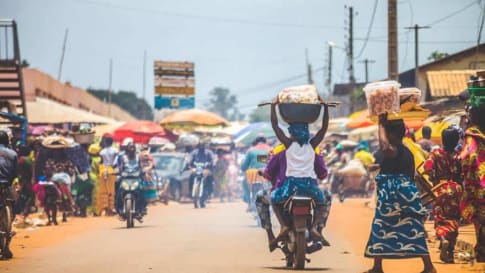
21 days
Sep, MayExplore the History, Culture & Wildlife of West Africa: Ghana, Togo & Benin
Visiting Benin, Ghana
This small group tour for couples and solo travelers concentrates on the history, culture and wildlife of coastal Central Africa. Meet the friendly local people and come to a greater understanding of just what has made them what they are today.
From A$15,745 AUD
View Tour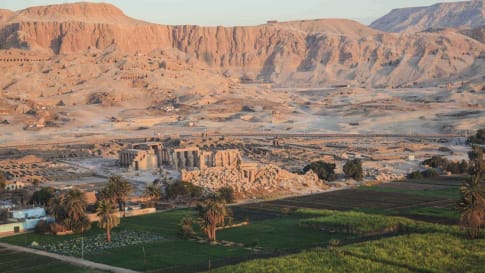
18 days
Nov, JanEgypt tour: escorted small group history & cultural tour of Egypt
Visiting Egypt
Our small-group program, designed for senior couples and solo travellers, offers a rich journey through Egypt's past and present. You'll explore modern marvels like the Aswan Dam and immerse yourself in pivotal sites such as Tahrir Square, both key to understanding Egypt’s enduring influence on civilization. This tour is proof that Egypt remains a vital crossroads of history and culture. We explore Egypt's fairy-tale natural beauty, its ancient history, and Imperial heritage, its World Heritage Sites, and world famous cities, all with some truly spectacular scenery along the way. For those seeking an even deeper experience, we also offer opportunities to extend your travels with our tours in Morocco, Jordan, or Tunisia before beginning your Egyptian adventure.
From A$13,450 AUD
View Tour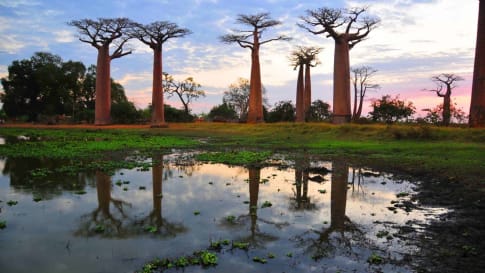
16 days
Apr, Aug, SepMadagascar Small Group Tour | The island of Lemurs & Avenue of Baobabs
Visiting Madagascar
On this small group tour we explore the country’s natural wonders as well as its colonial past. Madagascar has a range of extraordinary plant and animal life which we will have the chance to view in the island’s National Parks and Nature Reserves. While on the tour we will also learn about both the Portuguese and French periods of control.
From A$14,995 AUD
View Tour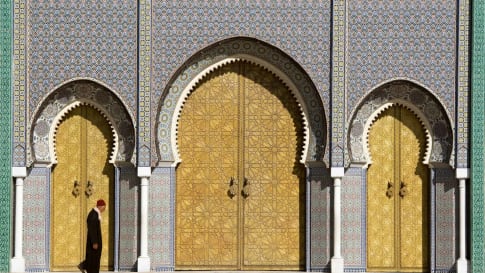
20 days
Mar, Apr, OctMorocco tour for senior travellers
Visiting Morocco
Embark on an unforgettable journey through Morocco: A Gateway to a world of vibrant colors, cultural diversity, and endless wonder. Join our escorted small group tour designed for senior travellers, whether you're a couple or a solo adventurer, and immerse yourself in the captivating allure of Casablanca, Fez, Meknes, Rabat, Marrakech and beyond. Experience the richness of Moroccan traditions and heritage as we explore this enchanting destination.
From A$12,750 AUD
View Tour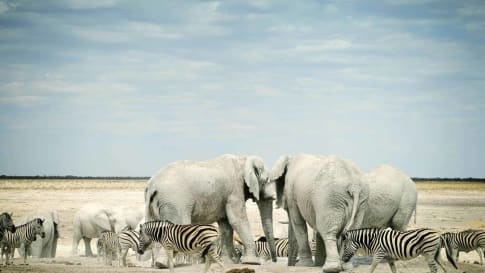
10 days
SepNamibia Wildlife and Culture Tour for Seniors
Visiting Namibia
A small group tour for seniors and couples to Southern Africa for couples and solo travellers. Namibia shares borders with Angola and Zambia to the north, Botswana to the east and South Africa to the south and east. Wedged between the Kalahari and the South Atlantic, Namibia is home to the oldest desert of the earth. Despite its parched reputation, Namibia is one of the world’s best wildlife destinations.
From A$14,685 AUD
View Tour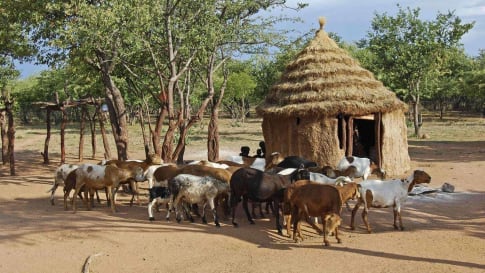
19 days
AugSouthern Africa Tour | Fully Escorted Africa Tour for Seniors
Visiting Botswana, South Africa
Join us for an unforgettable small group tour designed for couples and solo travelers, where you’ll explore the stunning landscapes of the Garden Route and encounter the unique wildlife of renowned destinations like Kruger National Park, Cape Town, Victoria Falls, and Chobe Game Reserve. Throughout the program, participants will delve into the rich cultural tapestry, political landscape, and social challenges faced by the people of South Africa, particularly in Soweto. Additionally, you'll gain insights into how natural resource managers are dedicated to protecting wildlife reserves amid the pressing issues of land enclosure, climate change, and poaching.
From A$14,995 AUD
View Tour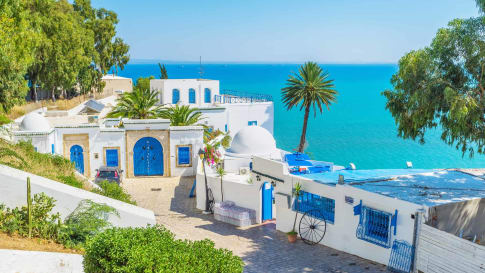
14 days
Apr, Sep, MarTour of Tunisia
Visiting Tunisia
Join Odyssey Traveller on this small group tour of Tunisia in North Africa for couples and solo travellers, where Carthaginian ruins sit side by side with Roman monuments, grand Islamic mosques, Arabic souks and medina, and honeycomb-like Berber cave dwellings and hilltop villages.
From A$11,950 AUD
View TourRelated Articles

Africa's Gold Coast
Article for travellers exploring West Africa and Ghana about the Portuguese and Gold. An Antipodean travel company serving World Travellers since 1983 with small group educational tours for senior couples and mature solo travellers.
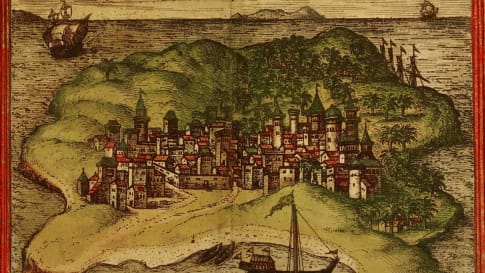
Archaeological mysteries of Australia: How did a 12th century African coin reach Arnhem Land?
Consider the impact of Portuguese, Spanish and Chinese followed by the Dutch trading in the Spice islands to the North of Australia from the 11th century. The probability of African coins reaching a beach become real. Learn more on a small group package tour to Kakadu and Arnhem land or the Kimberley where shipwrecks have been found to consider the impact on Aboriginal history and rock art. Tours for seniors couples and singles.

Atlantic Triangular Slave Trade
Atlantic Triangular Slave Trade Somewhere between ten million and twelve million enslaved Africans were transported across the Atlantic to the Americas between the middle of fifteenth century and the end of the nineteenth. The largest…

Birth of the Nile River
The Nile, one of the world's great river systems for trade and agricultural production. Learn more about the river and its journey our across Egypt. An Antipodean travel company serving World Travellers since 1983 with small group educational tours for senior couples and mature solo travellers.

Continental Crossroads: Discover Morocco
Morrocco, ancient civilisation, blue city, white city, Berbers, The Romans, Portugese the history rolls on for this country in North Africa. Join a small group vacation package that tours Morocco. A tour of Morocco for mature and senior travellers, couples or singles over the course of the itinerary, the history, culture and landscape are all explored, from Fez to Marrakech or the Cave of Hercules.

Discover Central and West Africa: Ghana, Togo, Benin, and more
Central and West Africa has a rich and vibrant history, that is rarely properly explored. Odyssey provides a number of tour packages to Africa, with trips that include South Africa, Namibia, Botswana, Madagascar, and…
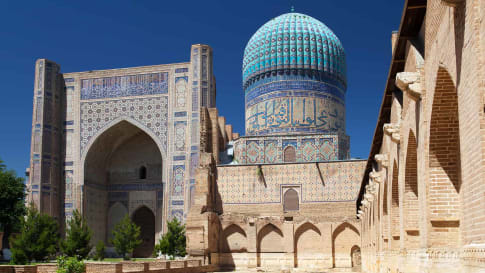
Elements of Mosque Architecture
The word "mosque" often brings to mind not this simple prayer space, but the ornately decorated monuments built by powerful Islamic rulers.
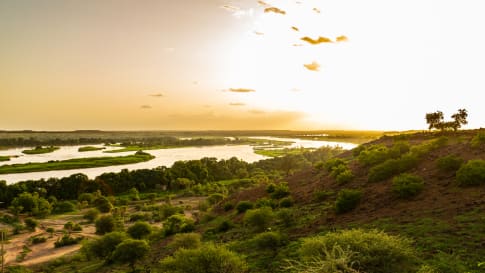
Empires of the Sahel
The surging gold trade in West Africa transformed cities like Gao and Timbuktu into vibrant hubs of trans-Saharan commerce. This article explores the importance of this trade and early globalisation. An Antipodean travel company serving World Travellers since 1983 with small group educational tours for senior couples and mature solo travellers.
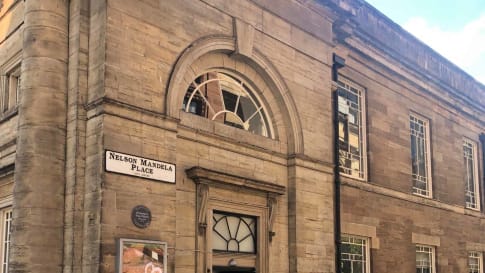
Glasgow; Nelson Mandela Place
How Glasgow stood with the South African Leader Against Apartheid as part of learning about Scotland before joining a small group tour for senior couples and mature solo travellers.
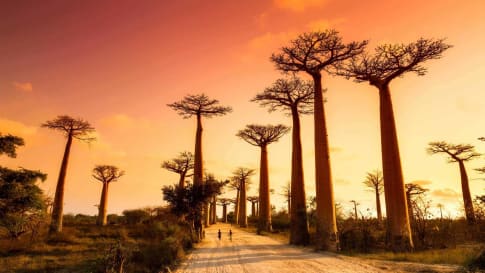
Madagascar’s Fascinating History
Madagascar’s Fascinating History Geographically remote, off the eastern coast of Africa and in the Indian Ocean, is Madagascar. This article briefly outlines the history of Madagascar and examines the unique biodiversity of the island. Baobab…
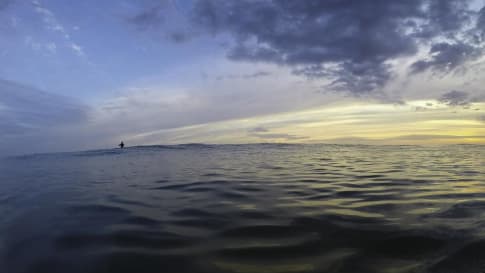
Pillars of Hercules
Article about the history of where the Mediterranean sea meets the Atlantic ocean for the explorers from Crete, Italy, Spain, including the Phoenicians and the Romans. For senior couples and mature solo travelers interested in small group educational tour.
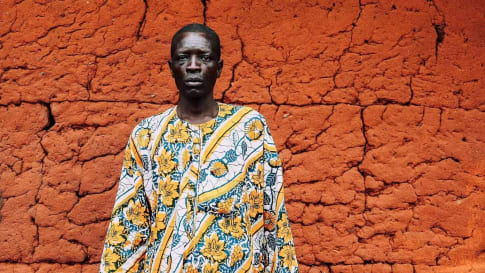
Portuguese in Africa: The Definitive Guide
The Portuguese in Africa The Kingdom of Kongo and the Transatlantic Slave Trade The Kingdom of Kongo was a former kingdom that dominated West Central Africa in the fourteenth century (Heywood, 2009). Located south of…


